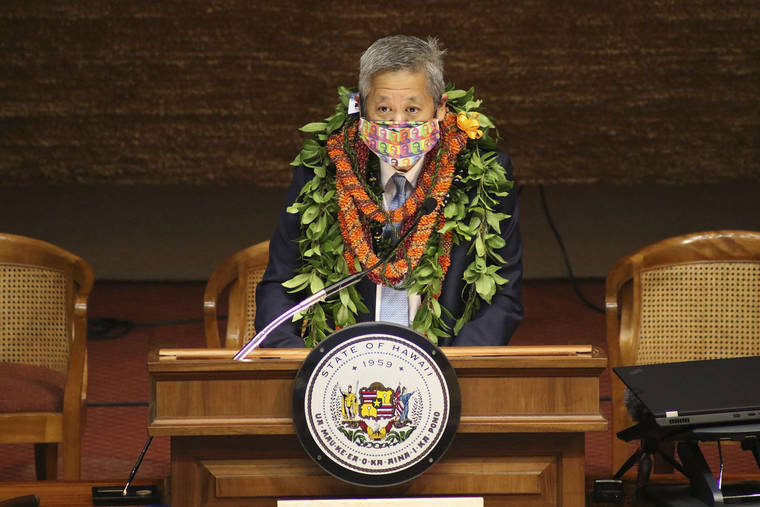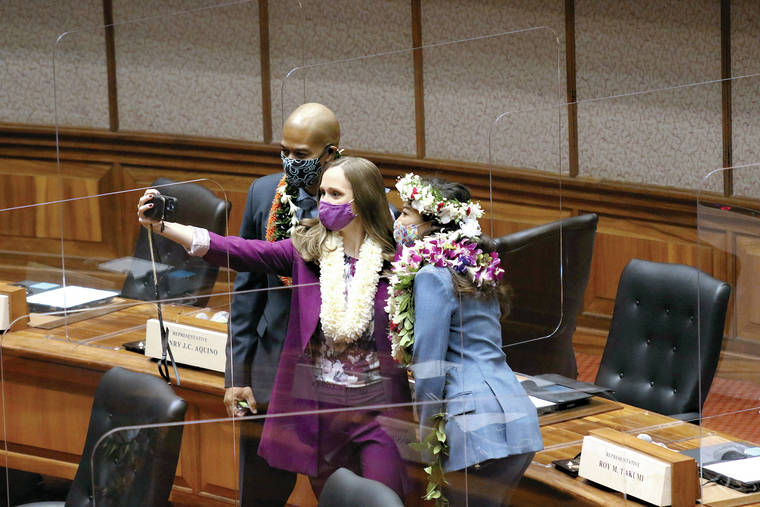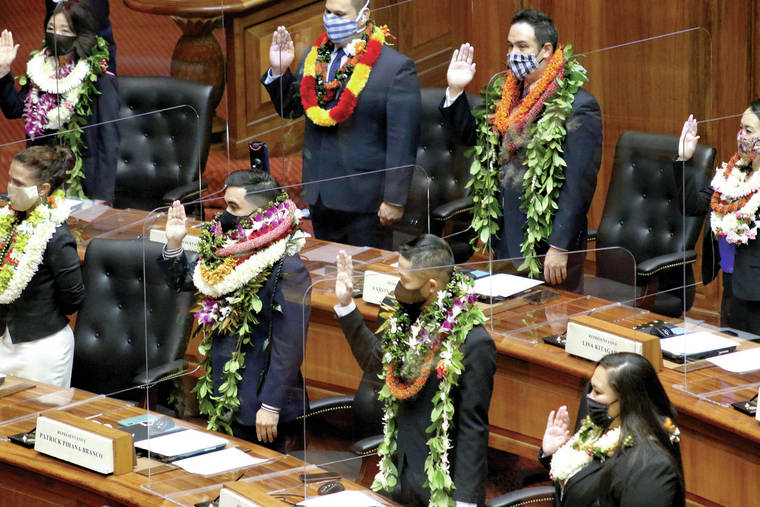Although Hawaii faces a massive budget deficit, leaders of the state House of Representatives said Wednesday that they have no desire to raise taxes.
Because of the continuing economic impacts of the COVID-19 pandemic, the state currently faces a budget shortfall of what Gov. David Ige estimates is $1.4 billion — although Finance Committee Chairwoman Rep. Sylvia Luke said Wednesday that the deficit is about $1.8 billion.
However, during a news conference after the opening of the 2021 legislative session Wednesday, House leaders were adamant that they would seek other methods for alleviating the shortfall instead of an across-the-board tax increase.
“We don’t want to react to COVID with extreme measures,” said House Speaker Scott Saiki, adding that raising taxes now, when many residents are economically vulnerable, would place intolerable strain on many Hawaii families.
Luke said she is not opposed, however, to “alternative taxes,” explaining that a selective tax increase targeting wealthier entities could be considered.
“We’re going to have to get creative,” Luke said. “We can’t just tax the working class … but maybe we could raise taxes for the people who aren’t paying their fair share.”
Luke did not specify who might be targeted.
With a major tax increase off the table, the state government must seek other ways to fill the hole in the budget. Saiki said managing the budget and public health will be priorities for the House during this year’s legislative session, with every state agency being scrutinized to determine what functions “we can survive without.”
Luke and Rep. Aaron Johanson said the state should try to get tourists to return in larger numbers as quickly as possible, although Luke added that she thinks returning to the days when 10 million visitors arrived at Hawaii’s airports in a single year is neither feasible nor desirable.
Rather, Luke said the state might seek to restructure how it manages its state parks, using Kauai’s North Shore as a model.
In 2019, Kauai implemented a number of changes to attractions on the Napali Coast after it was closed for 14 months following the 2018 floods, including a new requirement for paid reservations to nonresidents to access the park, paid parking and higher parking fines. Luke said similar changes could be implemented at state parks on other islands as well.
Luke pointed out that, while the number of visitors to the state has increased year-by-year until 2020, the amount of money spent by visitors has not.
Email Michael Brestovansky at mbrestovansky@hawaiitribune-herald.com.











